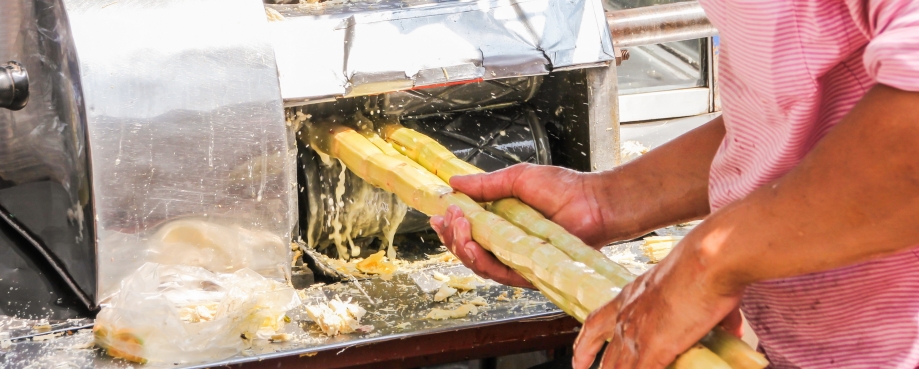
The European Union’s Everything But Arms arrangement, established under the General System of Preferences (GSP) scheme, provides the world’s poorest countries with duty-free access to the European market for all tariff lines. The only exception is arms and munitions. Yet does the arrangement need to be strengthened to take into account the UN’s Guiding Principles on Business and Human Rights? This analysis of the impact of Everything But Arms in Cambodia and Myanmar shows that it might.
New advanced training course: Human rights due diligence
Trade is fundamental to supporting political stability. And with EU trade preferences providing priority access to the world's largest market, Everything But Arms (EBA) is a vital part of that equation.
It was set up to improve the integration of very poor countries (Least Developed Countries or LDCs in 'development' parlance) into the global economy and to reduce poverty
To put it simply, EBA has the potential to make a huge difference to a country's economic development and can bring real benefits to ordinary people’s lives.
The cost of putting Cambodia on the fast track to industrialisation
From 2003-2013, access to the European market under the EBA allowed Cambodia to more than double its exports to the EU, providing direct employment to more than half a million Cambodians.
It continues to play a significant role in several key sectors vital to Cambodia’s economy.
In one sector however, serious human rights violations have been recorded that appear to have been stimulated by EBA incentives.
Widespread displacement, severe livelihood impacts and violent evictions have all been documented and linked to land concessions issued to companies producing sugar that has been exported to the EU under the EBA.
Members of the EU Parliament have joined a number of civil society groups in advocating for a withdrawal of tariff preferences for Cambodia, arguing that EBA is benefiting land grabbers and companies engaging in child labour, and has resulted in significant negative impacts.
But, the EU's regulations only contain temporary withdrawal provisions for tariff preferences where serious and systematic violations of core human rights, labour rights and environment and governance principles have been found.
Furthermore, withdrawal provisions are rarely implemented.
Myanmar's trade preferences reinstated with limited checks and balances
Myanmar’s preferences may have been withdrawn in 1997, but this is the exception and not the rule, and the suspension occurred after violations had already taken place.
Following the start of political reform, in 2013 the EU lifted all economic sanctions imposed on Myanmar and granted the country duty-and-quota-free access to the EU market under the GSP scheme.
Tariff free access is now driving a rapid expansion in garment export growth for Myanmar; the Myanmar Garment Manufacturers Association for example anticipates exponential growth in years ahead, creating around 1.5 million new jobs and generating US$12 billion in export value by 2020.
Yet companies benefiting from the GSP are not required to conduct due diligence throughout their supply chains to mitigate the risks of serious rights violations from occurring again.
How countries qualify for entry into Everything But Arms
All countries identified by the United Nations as least developed may benefit from the EBA and entry is automatic.
There are no additional criteria to qualify; beneficiary countries are not required to demonstrate that they meet minimum human rights standards or that exporting companies’ respect core ILO Labour Conventions for instance.
Criticism is often levelled at the EU for creating overly burdensome regulations and too much red tape.
In reality, companies exporting under the EBA are not required to demonstrate good practice or that they don’t infringe on the rights of workers or local communities.
This needs to change.
Addressing business and human rights abuses
Further analysis needs to be conducted around whether withdrawing EBA completely from countries with questionable human rights records would be akin to throwing the baby out with the bath water.
Meanwhile, rather than suspend beneficiary countries, the EU should re-consider what mitigation mechanisms could be put in place.
In particular, on how to oblige all countries exporting under the EBA to guarantee that their own beneficiary companies have accepted obligatory monitoring – to demonstrate that they are meeting minimum human rights and labour standards in supply chains.
Respect for human rights may be a relatively new feature for corporate due diligence policies and practices in supply chains. But the UN Guiding Principles on Business and Human Rights is driving discussions around stronger regulation and mandatory due diligence in order to better protect workers and other vulnerable groups on the ground.
For example, in the absence of effective state mechanisms, companies in Cambodia or Myanmar could be required to conduct full audits and to develop proper due diligence policies for their supply chains to qualify.
The EBA would then serve the dual purpose of stimulating trade through the provision of duty-free tariffs, and provide clear financial incentives to companies which don’t already comply with minimum international human rights standards.
